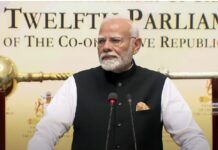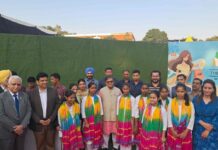PGIMER initiating Paediatric COVID-19 Serosurvey this week in UT Chandigarh
Chandigarh : June 21 : “PGIMER, Chandigarh has been sanctioned funds from UT Administration for carrying out COVID -19 serosurvey among paediatric population of the city. This survey is expected to start this week and will involve more than 2000 children and is expected to be over in one month’s time,” stated Prof. Jagat Ram, Director PGIMER today.
Further elaborating on the relevance of serosurvey, Director PGIMER said, “This survey will help in estimating the percentage of children who already have anti-SARS CoV2 IgG antibody present which is an indirect marker of previous infection and will be useful in policy matters regarding COVID-19 vaccination among pediatric population if launched in near future. This will also help in making necessary arrangements for the pediatric population since according to some experts children may be at more risk during the third wave.”
The serosurvey will be conducted by Team from Virology and School of Public Health under the supervision of Prof GD Puri , Dean (Academics), PGIMER in the following sectors by house to house visit as per study protocol. To have the uniform representation samples will be collected from three different areas of the UT Chandigarh i.e. Sectors – 3, 6, 22, 24, 29, 36, 46, 47, 48, 56; Villages – Khuda Jasu, Dhanas, Maloya, Mauli Jagran, Makhan Majra, Raipur Kalan, Burail (sec 45), Attawa (Sec 42), Kajheri (sec 52), Hallomajra, Colony no. 4 (Industrial Area), Bhaskar Colony, Sanjay Colony (Ph1 Industrial Area), Indira Colony, Bapu Dham, Maulri Jagran, Dadu Majra, Colony no. 5 (Industrial Area), SBS Colony and Manimajra.
Prof Jagat Ram urged the residents of UT Chandigarh to come forward to participate in the present study as this will help in true assessment of paediatric population at risk and to detect antibody formation in response to previous infection. After obtaining consent/assent 2-3 ml of blood will be collected by the trained medical personnel. Results of testing will be duly conveyed to all the study participants.
















